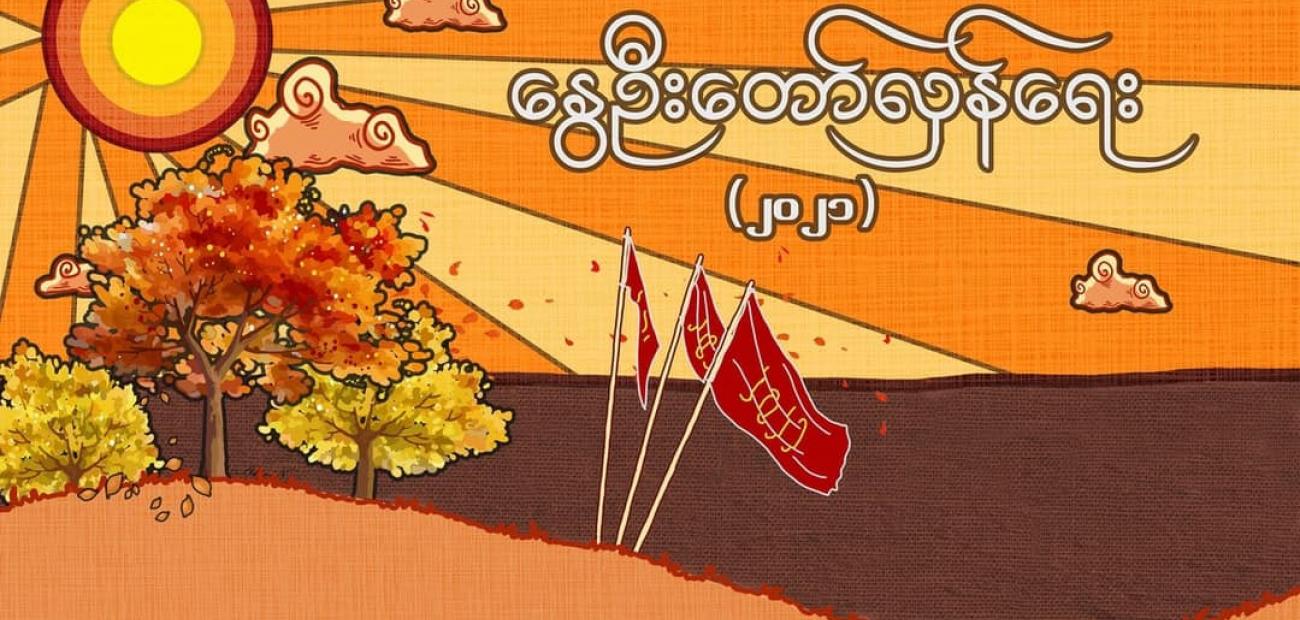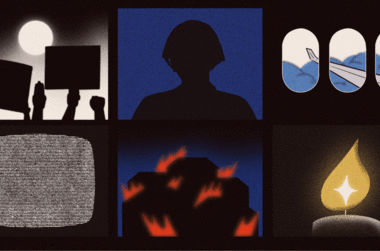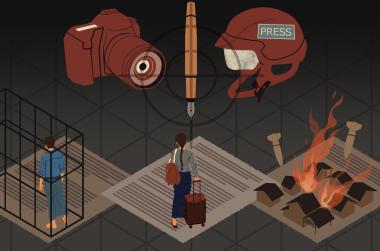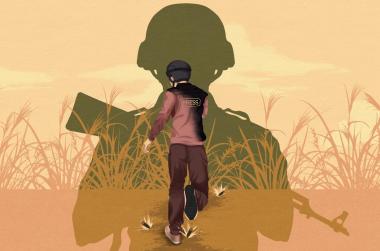The military coup in Myanmar and its aftermath has devastated the economy and swept the country into violence and fear, touching every region, from the cities to the most isolated villages. While city dwellers felt the economic pain first as companies closed and workers went on strike, rural producers have increasingly found that they are virtually cut off from their normal markets, like this 22-year-old farmer in the Magway region. He and his family rely on the money they get from their smallholding as well as income from a small shop.
It’s become much more difficult to make ends meet. Prices of rice, oil and essential staples have gone up. Currently there are four of us at home. One works outside and we also have a small medicine shop. Even the goods I sell, I have to buy and the prices have gone up. But we don’t want to put too much of a mark-up on things so our profits are low. It’s much harder.
My family has been farming for many generations. We grow peanuts, sesame, and pigeon pea on our farm. We haven’t been able to grow rice for about three or four years because we didn’t get enough rain. Right now, we are just growing other crops.
In previous years, we were able to time when we sent our harvest to sales centres when prices were good. We were able to organise transport. This year, because of the political situation, it’s not going to be easy to send the produce in time, even if the prices are high. I think the difficulties are mainly as a result of the political situation. We had COVID-19 last year but the brokers’ trucks left on time and on a regular basis, like every two or three days.
At the moment we have produce, but we are having difficulty transporting it. The brokers are no longer taking the harvest to the sales centers - we have to rely on passenger express buses. That’s the problem we are facing. The buses don’t have a regular schedule and they have to plan according to the situation on the ground. Sometimes they only go once a month.
It’s the thing I’m most worried about. We don’t know when the political situation is going to be resolved. Our money is locked in our produce. If we don’t sell it, we won’t get money. Very few people are able to buy these things in a strategic manner and if the political situation is going to get worse, it will become even more difficult. That’s my biggest worry. At the moment the key thing is just to sell it at whatever price we can get.
We haven’t borrowed money for our farm, but there are others who have. In the past, when the political situation was good, a bag of fertiliser cost 30,000 kyats, at most 35,000 kyats. Now it costs up to 65,000 kyats. We can’t really reduce the inputs, we just want to have a good yield. Compared to other places, we use a lot less fertiliser and pesticides. But this year we are using quite a lot because of fear of pests. Some are overusing pesticides.
The government provides loans depending on how much land you have, whether you’re a big farmer or a small scale farmer. Just the other day, a former village leader went around with a microphone telling people where they can get credit from the agri bank. Some actually went to apply for the loans because they are worried about the future and think if they can get credit, they might be able to produce enough to feed themselves.
People are moving their income around - in some villages there are households who have cash from shops, some are selling their stock from the previous years to get cash, borrowing money from each other. This is how people are helping each other.
We’re just trying to make sure we can survive with whatever we have. If we need investment in the farm, then we reduce the capital in the shop. We are not doing too badly but there are others who are not so lucky. For example, some farmers don’t own cows so they have to rent that if they are going to grow anything. And even after you’ve planted the crops you still need to plough about up to 10 times. It costs about 10,000 - 15,000 kyats every time so they have to get loans (or) farm on credit (pay on harvest). The same for using inputs.
I really would like people not to raise prices of foods and goods by so much. A little bit is fine but not double or something. We have to support each other. We only have each other for support. We shouldn’t exploit each other.
If anything happens in our area (in terms of fighting the junta), I will take part in whatever way I can. We have saved up what is needed to be saved. We are ready to help.
Image courtesy of Art for Freedom (Myanmar).





